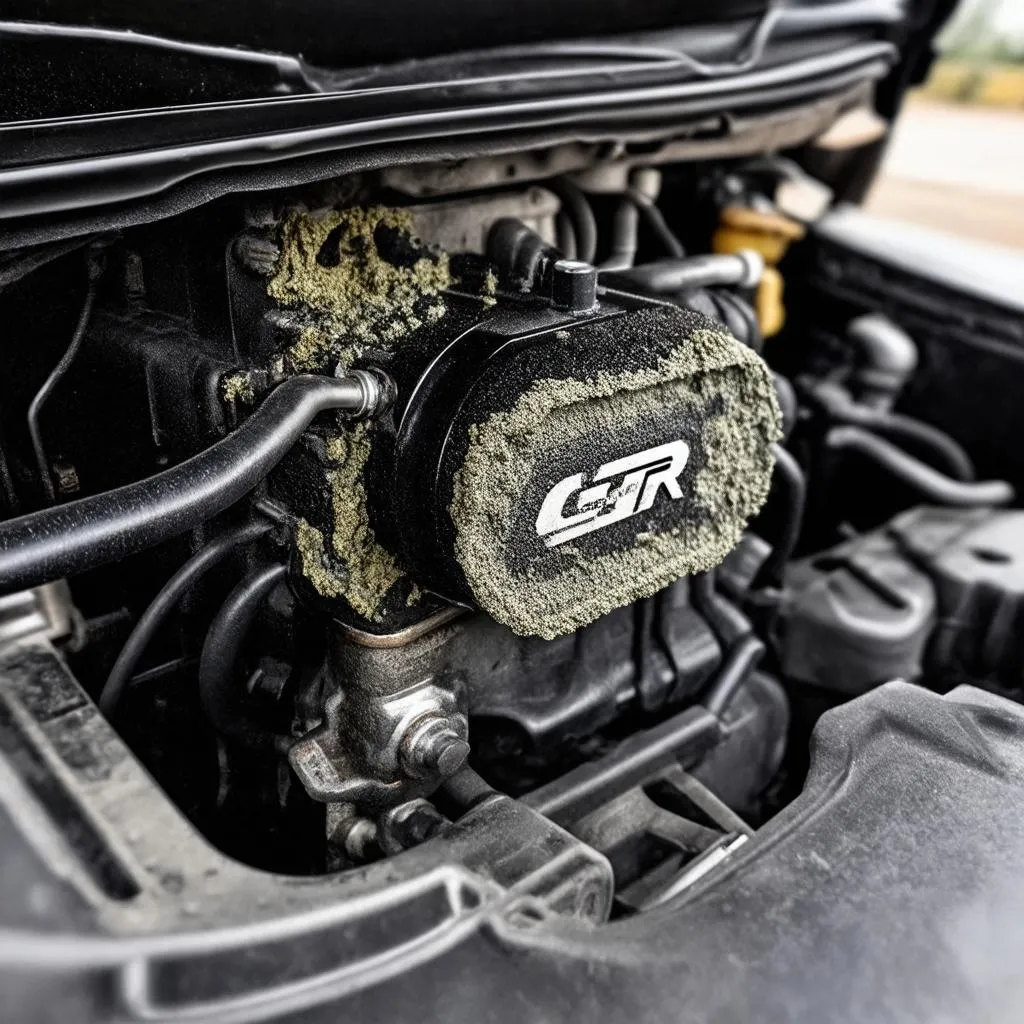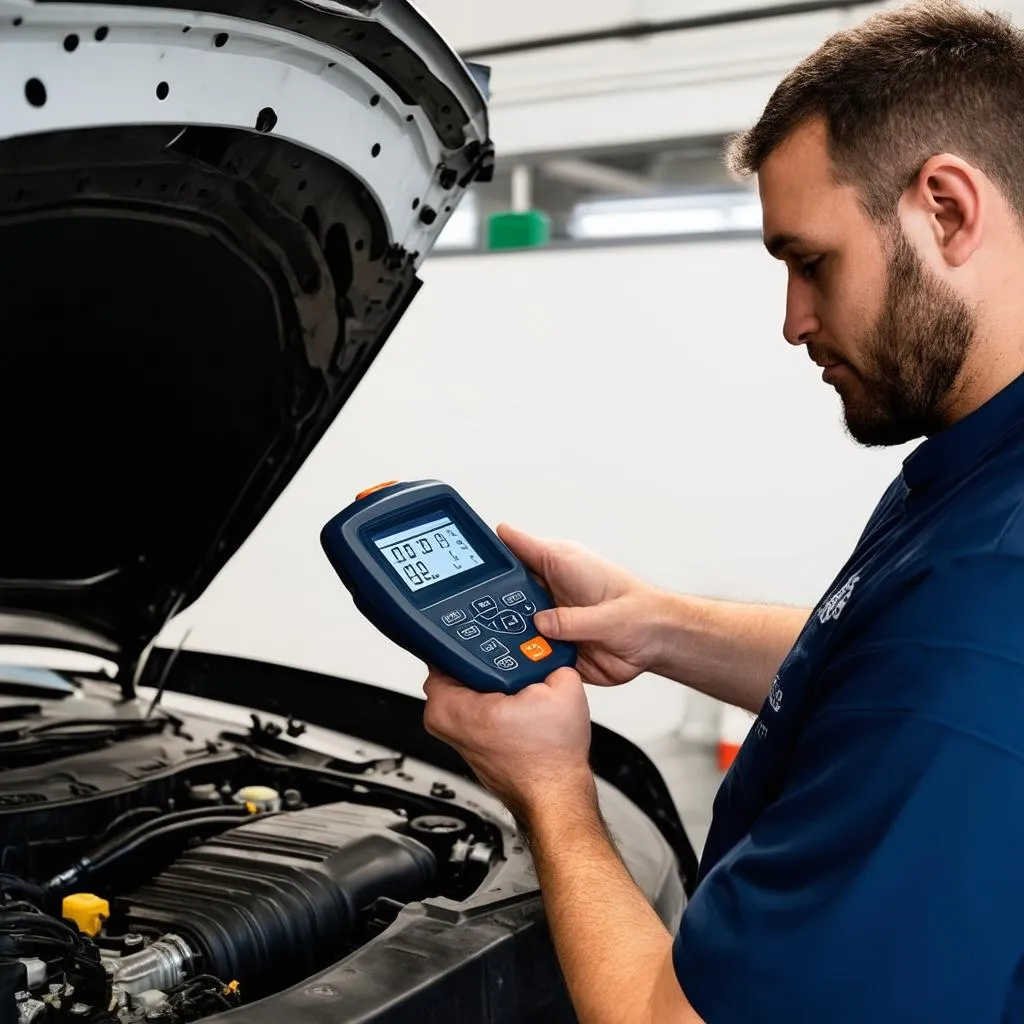“My check engine light just came on, and the code reader says P0400. What in the world does that even mean?”
Have you ever muttered those words in frustration? You’re not alone. The dreaded check engine light is a universal symbol of car trouble, and the OBD code P0400 can leave even seasoned car owners scratching their heads. Fear not, for this article will delve deep into the meaning of this cryptic code, guiding you towards a solution and perhaps even a newfound appreciation for your car’s intricate exhaust system.
What Does OBD Code P0400 Mean?
In simple terms, OBD code P0400 signals a problem with your car’s Exhaust Gas Recirculation (EGR) system. Imagine this system as your car’s internal recycling program for exhaust gases. It reduces harmful emissions by redirecting a portion of them back into the engine for a second round of combustion.
The Importance of a Smooth-Running EGR System
But why does this matter? Think of it this way: In the realm of automotive health, a well-functioning EGR system is like a well-balanced chakra – essential for maintaining harmony and preventing blockages. Just as stagnant energy can lead to physical and emotional imbalances, a faulty EGR system can throw your car’s performance off-kilter.
Causes and Symptoms of P0400
Now, let’s explore the potential culprits behind a P0400 code:
- Clogged EGR Valve: This is like a blocked artery in your car’s exhaust system. The valve, responsible for controlling the flow of exhaust gases, can get jammed with carbon deposits over time.
- Faulty EGR Solenoid: This electrical component acts as the valve’s gatekeeper, regulating its opening and closing. A malfunctioning solenoid can disrupt the entire gas recirculation process.
- Vacuum Leaks: The EGR system often relies on vacuum pressure for proper operation. Any leaks in the vacuum hoses can create havoc and trigger the P0400 code.
- Wiring Issues: Frayed or damaged wiring to the EGR solenoid or sensor can disrupt communication, leading to inaccurate readings and triggering the dreaded code.
But how can you tell if your car is suffering from P0400 woes? Keep an eye out for these telltale signs:
- Illuminated Check Engine Light: This is your car’s way of saying, “Hey, something’s not right!”
- Rough Idling: Your engine might sound like it’s about to stall, especially when idling.
- Reduced Engine Performance: You might notice a decrease in power, particularly during acceleration.
- Increased Emissions: A malfunctioning EGR system can lead to higher levels of harmful emissions.
Diagnosing and Fixing the Problem
Don’t despair if your car exhibits these symptoms. While a trip to a trusted mechanic is always recommended, there are steps you can take to investigate the issue further:
- Check for Obvious Signs: Start by visually inspecting the EGR valve and related components for any visible damage, loose connections, or blockages.
- Consult Your Owner’s Manual: Your car’s manual is a treasure trove of information, often providing specific troubleshooting steps for common OBD codes.
- Use a Dealer Scanner: For European cars, a specialized dealer scanner can provide in-depth diagnostics and pinpoint the root cause of the problem. This is where “Dealer Scanner for European Cars” can be seamlessly integrated as a relevant product.
 Car EGR Valve
Car EGR Valve
The Importance of Addressing P0400
Ignoring a P0400 code is like ignoring a persistent cough – it might seem minor at first, but it could be a sign of a larger underlying issue. Addressing the problem promptly can save you from:
- Costly Repairs: Ignoring a P0400 code can lead to more severe damage to your car’s engine and exhaust system, resulting in hefty repair bills down the line.
- Reduced Fuel Efficiency: A malfunctioning EGR system can disrupt your car’s optimal air-fuel ratio, leading to decreased fuel economy and more frequent trips to the gas station.
- Environmental Impact: A properly functioning EGR system is crucial for reducing harmful emissions and minimizing your carbon footprint.
Frequently Asked Questions about OBD Code P0400
Here are some common questions car owners have about the P0400 code:
- Can I still drive my car with a P0400 code? While you might be able to drive short distances, it’s best to address the issue promptly to avoid potential damage to your car.
- Is it expensive to fix a P0400 code? The cost of repair varies depending on the underlying cause and the make and model of your car. It could be as simple as cleaning the EGR valve or as involved as replacing the entire EGR system.
- Can I fix a P0400 code myself? If you’re mechanically inclined, you might be able to tackle some repairs yourself. However, it’s always advisable to consult with a qualified mechanic for complex issues.
Related OBD Codes and Car Models Affected
The P0400 code is often associated with other EGR-related codes, such as P0401, P0402, and P0403. These codes indicate different specific issues within the EGR system.
 Mechanic Diagnosing Car Issues
Mechanic Diagnosing Car Issues
While the P0400 code can affect a wide range of car makes and models, some vehicles are more prone to experiencing this issue, especially as they age.
Seeking Expert Help for Your Car Troubles
Dealing with car problems can be stressful, but remember that you don’t have to face them alone. If you’re struggling with a P0400 code or any other automotive issue, our team of expert mechanics is here to help.
Need Assistance? Contact us on WhatsApp at +84767531508 for 24/7 support with Diagnostics Tool installation and expert car repair advice.
Conclusion
Remember, your car is a complex machine, and even minor issues like a P0400 code should be addressed promptly to prevent bigger problems down the road. By understanding the causes, symptoms, and solutions related to this common OBD code, you can ensure a smoother, safer, and more enjoyable driving experience.
Have you ever encountered an OBD code P0400? Share your experiences and questions in the comments below!
For further insights into common car issues, explore our other informative articles on techcarusa.com, including (link to: https://techcarusa.com/22000c1-obd/ ) “Understanding OBD Code 22000C1.”